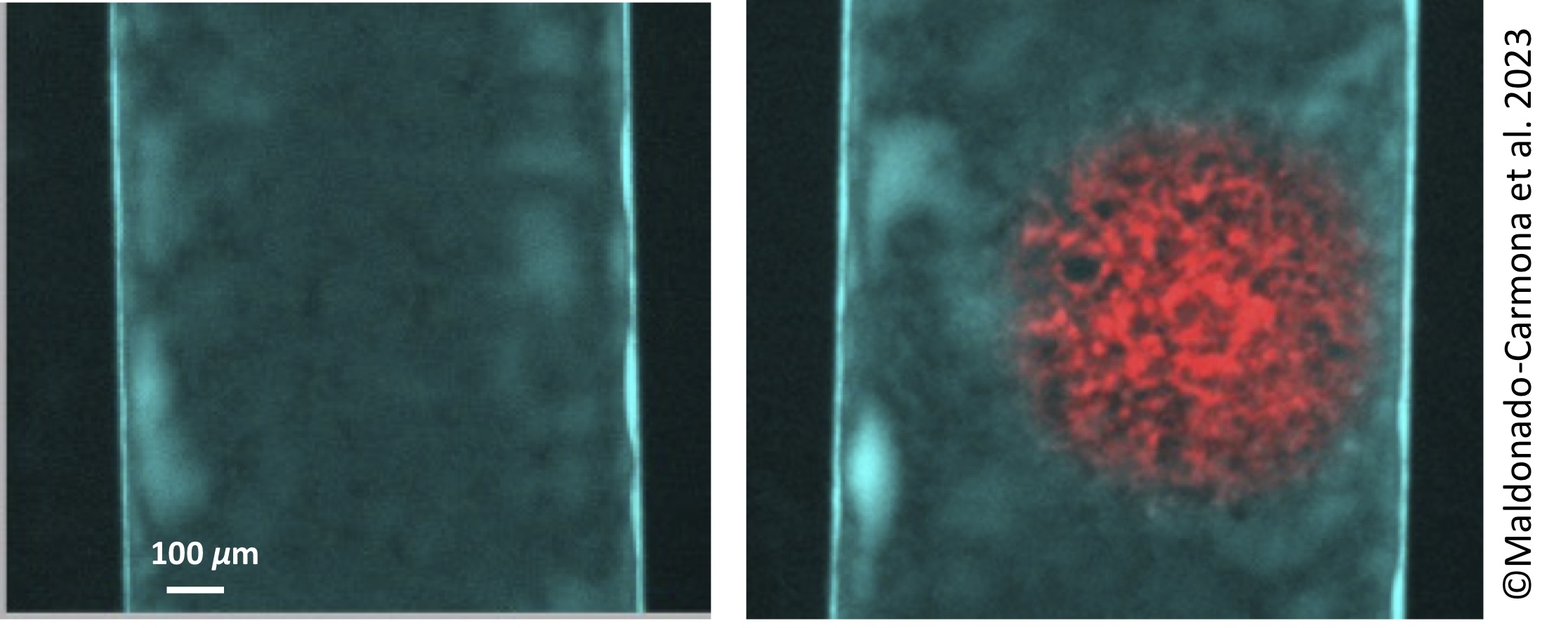2024
Bacterial biofilm interaction with light
The internship will be a contribution to a much larger collaborative European project (Fet-Open 2019-2024)1 aiming at the development of inhalable light sources for the treatment of lungs bacterial pathogens. The rationale of the project rests on the idea of eliminating the pathogenic bacteria by the photodynamic effect (local production of cytotoxic reactive oxygen species by the combined action of light, a photosensitiser — bacterial porphyrines — and oxygen).
The master internship will focus on the analysis of the interaction of light with a model bacterial biofilm in order to shed light on the basics dominating biofilm response to light.

The illustration shows a Pseudomonas aeruginosa (PAO1) biofilm growing in a millifluidic channel and illuminated at 550nm (left) and 405 nm (left) in the presence of propidium iodie, a red-fluorescnce toxicity marker. While blue-light 4(05 nm) leads to cellkilling, yellow-green light at 550nm displays no direct toxicity but might nevertheless induce a different biological response (Gomelsky & Hoff (2011) Trends Microbiol., 19, 441-448).
The goal of the projectis to investigatethis light sensing in controlled illumination conditions and to betterunderstand how light impact biofilm formation (continuation of collaborative Europeanproject Fet-Open 2019-2023).
The intern will focus first on biofilm light absorption properties in order to define the spectral efficiency of the whole design, second on light sensitivity of the biofilm in terms of bacterial survival. The laboratory holds an established expertise in the in situ real time monitoring of bacterial biofilm development under controlled flow in millifluidic setups. Quantitative analysis of developmental kinetics, spatial distribution and internal dynamics is performed based on video-microscopy data generated both in transmitted light and fluorescence. The experimental work dedicated to L4L project will range from instrumental design, microfabrication, video-microscopy, computer interfacing up to bacteria culture.
Candidate profile: Applicants must have their main background in physics or physico-chemistry with a strong interest in biology.
Supervisor: Nelly Henry, Micro-Organism Biophysics
Laboratoire Jean Perrin (LJP) - CNRS - Sorbonne-Université in Paris









